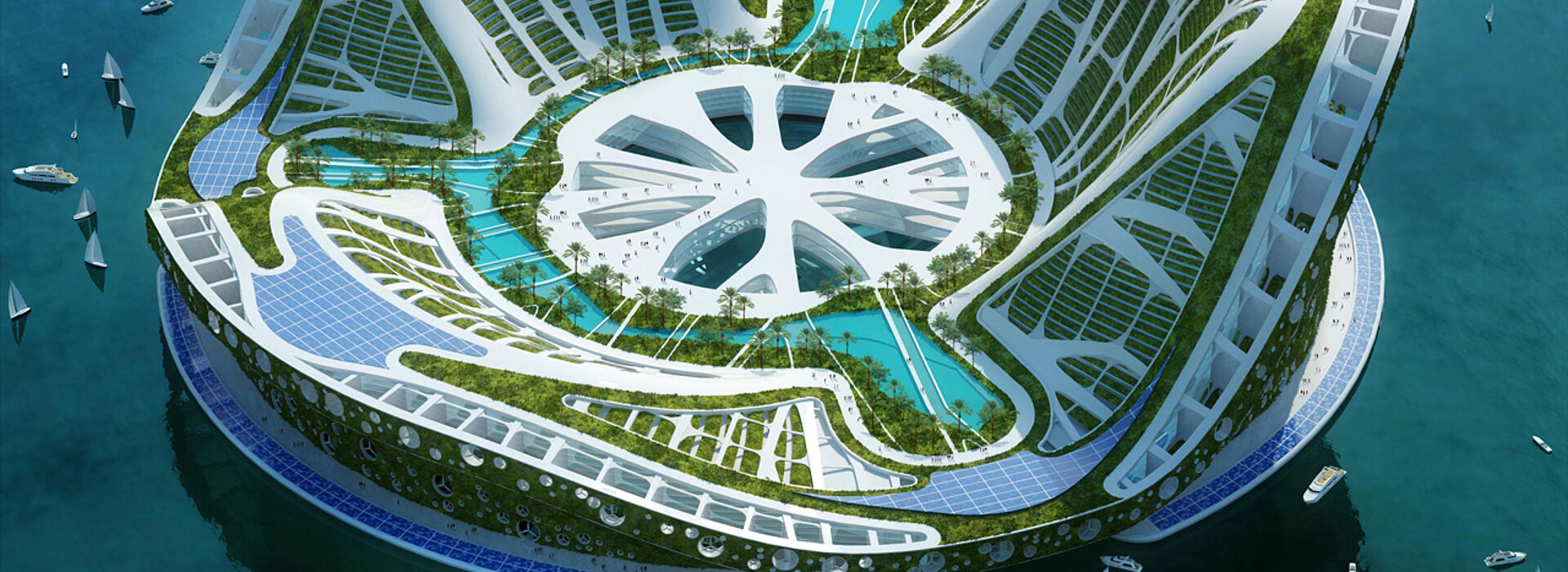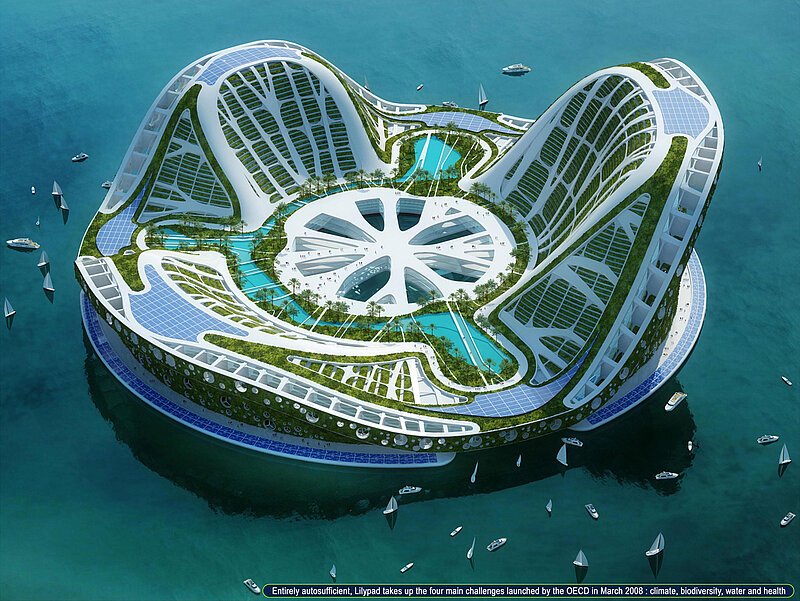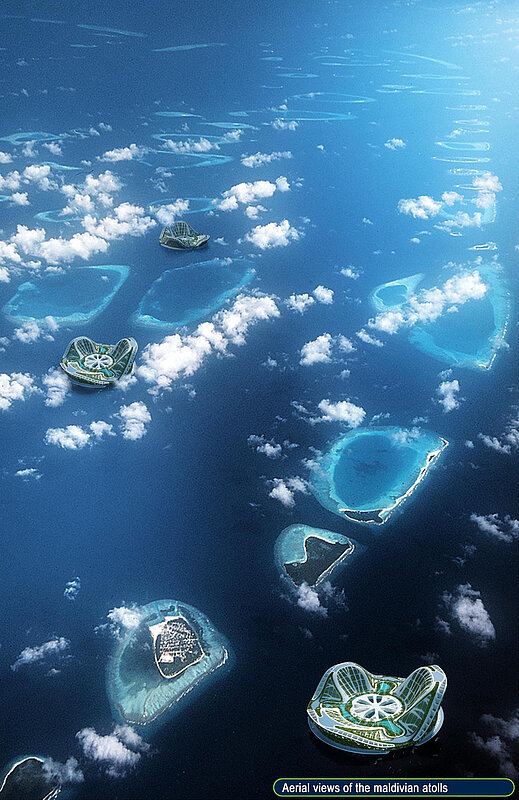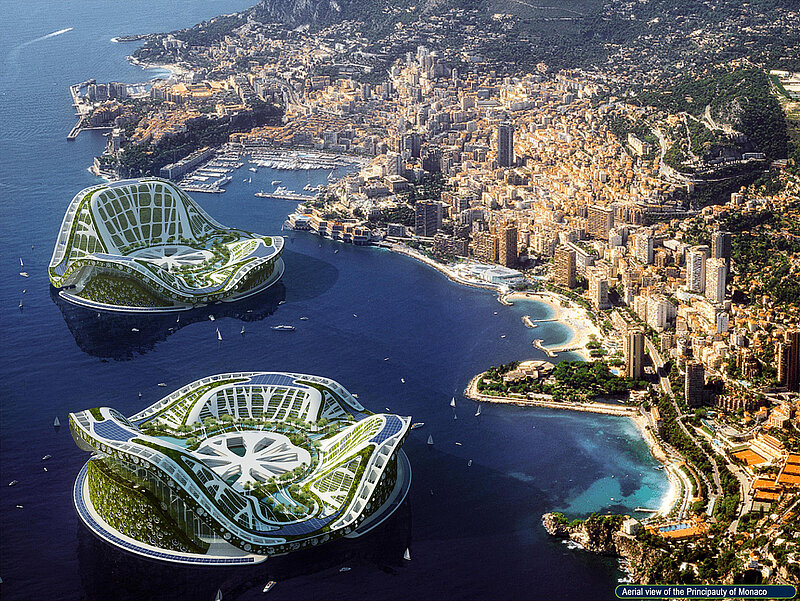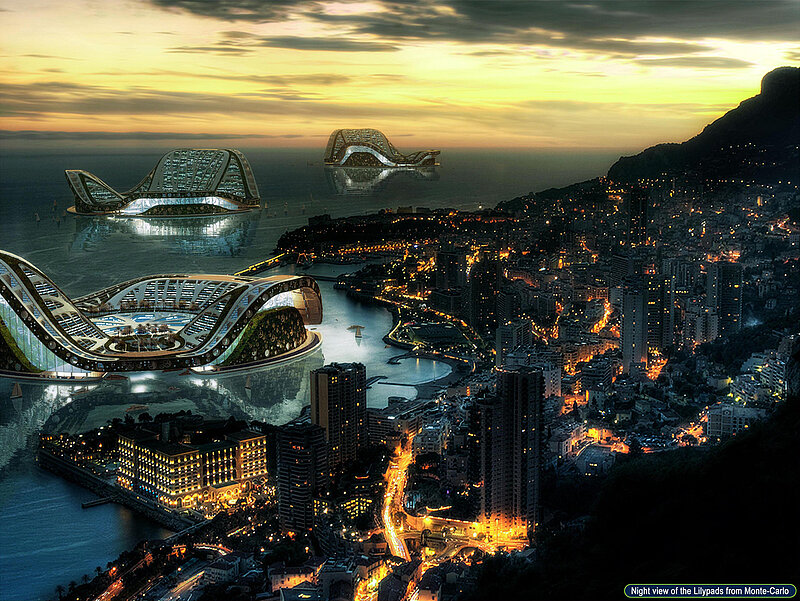Lilypad A self-sufficient floating city
- Year2013
The Lilypad, is a concept for a completely self-sufficient floating city intended to provide shelter for future climate change refugees.
Through a number of technologies (solar, wind, tidal, biomass), it is envisioned that the project would be able to not only produce it's own energy, but be able to process CO2 in the atmosphere and absorb it into its titanium dioxide skin.
Each of these floating cities are designed to hold approximately around 50,000 people. A mixed terrain man-made landscape, provided by an artificial lagoon and three ridges, create a diverse environment for the inhabitants. Each Lilypad is intended to be either near a coast, or floating around in the ocean, traveling from the equator to the northern seas, according to where the gulf stream takes it.
